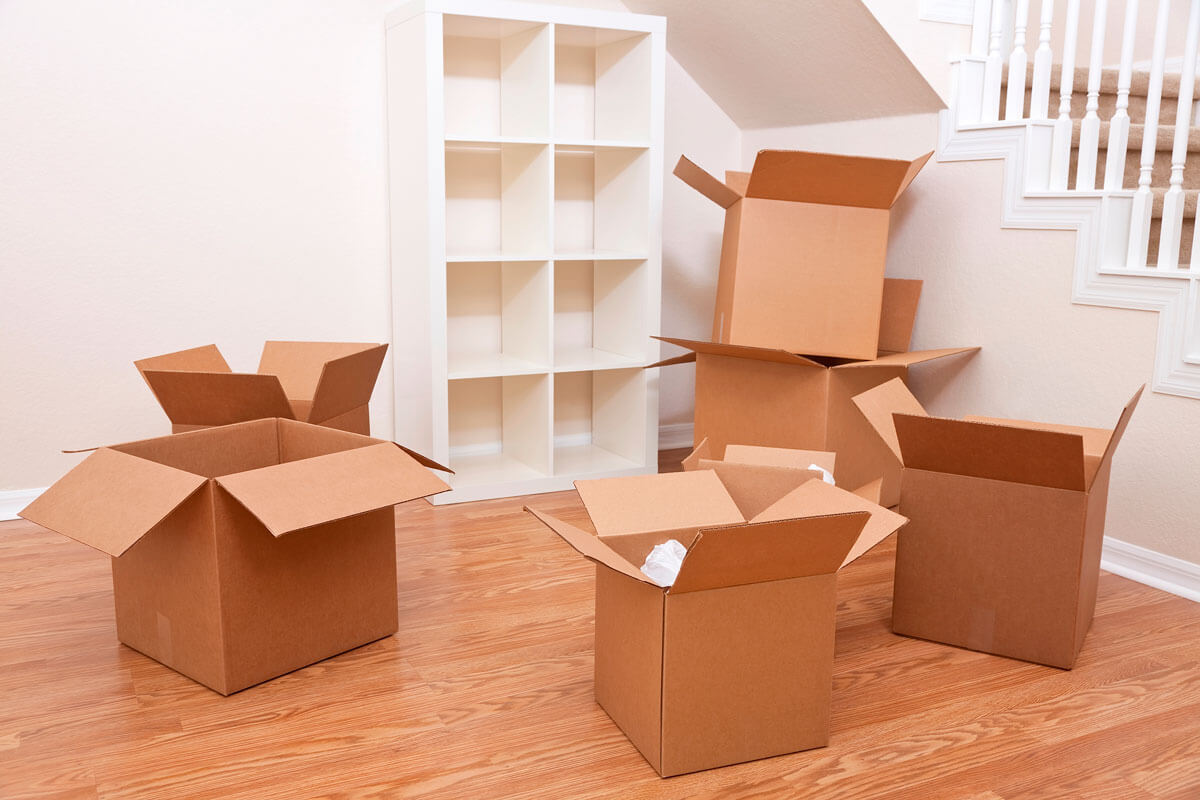It’s natural to feel anxious about a move. You and your family are pulling up roots and life will be different. Even positive change can bring on stress. Staying organized helps you manage your worries.
Packing and moving will likely be the biggest task. Hiring a professional mover will take a huge weight from your shoulders. Here are a few other ways to stay organized and in control ahead of your move.
How to Manage Anxiety About Moving
It’s never too early to start thinking about a move. Create a checklist and check off items as you complete them. We’ve created a list starting three months ahead of a move. Adapt the list to your timeline.
Two to Three Months Before The Move
- Call moving companies for estimates. Book your moving day as soon as you can. You’ll feel better knowing your date is reserved.
- Budget moving expenses. Your move could be tax deductible so keep a spreadsheet and receipts. If your employer is paying for the move, contact the department responsible to understand how they work. Feeling in control of finances will put your mind at ease.
- Sell, donate or trash. It’s a great time for a garage sale. Donate or toss what you don’t sell. You’ll be surprised how purging can lighten stress levels.
- Gather records, papers. Medical records, the kids’ school records, motor vehicle registration and insurance, bank records, magazine subscriptions all need to be collected and managed for the move. Schedule your change of address with the post office, bank and credit card companies.
- Get rid of hazards. If you have paint, gas for the mower, or other hazardous waste, plan to drop it off at a collection spot. Consult your city’s website for hazardous waste collection sites.
- Contact and schedule contractors for repairs needed on your old place.
One to Two Months Before The Move
- Plants and pets. Consider how you’ll move items like plants, pets and other items a moving company can’t transport. If you have pets, speak with your vet about how to keep them safe and comfortable.
- Contact the utilities companies and schedule turning off the utilities at your current address and turning on at the new one.
- Get packing materials. Your moving company will take care of most of your packing. If you have items that you want to pack yourself, get all the packing materials you need.
- Confirm moving day with your mover.
Two to Three Weeks Before The Move
- Take care of the lawn. Clean up lawn equipment, outdoor furniture and toys. Drain the gasoline from your mower if there’s any left, and dispose of it properly.
- Defrost the freezer to avoid mold or mildew after your move.
- Cancel home deliveries and services. Cancel or change newspaper delivery, regular maintenance of the lawn or pool and any other services.
- Return library books. If you are moving out of the area, it’s time to collect items in your safe deposit box, storage, pick up dry cleaning and return library materials.
One Week Before Your Move
- Pack a survival kit. Make sure you have toiletries, clothes and prescription medicines in an overnight bag. Pack a kit for each family member, including pets. Include snacks and pet food. Should you be delayed, you’ll have peace of mind knowing you have the essentials on hand.
- Organize items not going in the moving van. It’s a good idea to claim a place in the house where these items will stay during moving day.
- Make childcare plans. Consider how you’ll keep little ones out from under foot while the movers work. Have an area where you can an eye on them, or let them stay with friends for the day. Keeping kids safe reduces everyone’s anxiety.
- Disconnect appliances. If you have appliances that need to be disconnected professionally, schedule the service for this week.
- Use up your food. Keep only enough food for the remaining days.
Moving Day
- Clean out the refrigerator and kitchen cupboards. Toss extra food. Master Movers will take your unopened, non-perishable food for donation.
- Do a room-by-room check. Walk through the house room-by-room to make sure you haven’t left anything unpacked.
- Lock doors and windows. Make sure all windows and doors are closed and locked, all supplies (gas, electrical) are shut off and leave keys and garage door openers in an agreed upon location.
Staying organized keeps your anxiety in check. Master Movers is committed to making your move stress-free. Contact us for an estimate.


